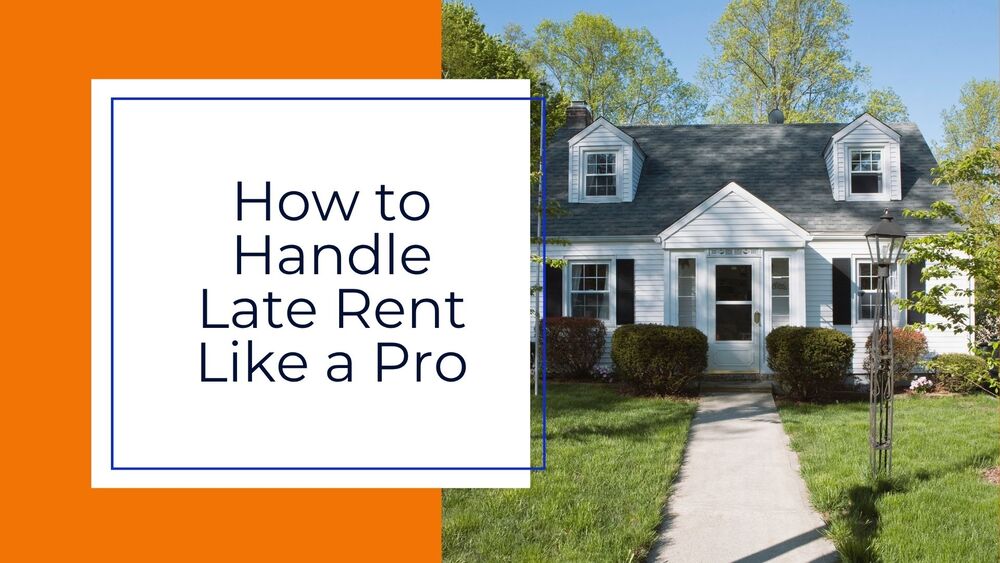Late rent is one of the most common challenges property owners face. It’s a delicate situation: you want to maintain a positive relationship with your tenants, but you also need to protect your investment and ensure consistent cash flow. After all, we all have bills to pay.
At Flat Fee Landlord, we understand this balance, and we’ve built our reputation on handling these situations with professionalism, empathy, and a focus on results. Here’s how you can approach late rent, and why partnering with us makes all the difference.
1. Set Clear Expectations from Day One
The foundation for handling late rent starts before a tenant ever misses a payment. It starts with your lease terms. Every lease we execute clearly outlines:
Rent due dates
Grace periods (if any)
Late fees and administrative charges
Consequences of non-payment
Resident responsibilities and obligations
At Flat Fee Landlord, our leases are designed to be crystal clear. For example, rent is due at the beginning of the month, but every state’s unique grace period is considered. For example, Texas and Georgia allow residents to pay up to the 3rd of the month without penalty, and by the 5th in the DMV area. If payment isn’t received, tenants are promptly notified, and late fees are assessed as outlined in the lease.
More than 80% of active leases include a late-fee clause, though only around 12% of landlords using the Avail platform actually end up charging one, according to Realtor.com’s Avail. That suggests clarity drives behavior and helps reduce the number of actual late payments.
State-by-state data also shows that in Texas, about 17% of renters report being behind on payments, highlighting how meaningful clarity can be in high-risk regions.
2. Communicate Promptly and Professionally
When rent is late, immediate and professional communication is key. Our process includes:
Calling tenants who haven’t paid by the 2nd or 3rd of the month (depending on location) to remind them and help avoid late fees.
Sending non-payment notices within one day of the due date.
Daily follow-ups via call, text, and email until the rent is paid or further action is required.
This approach keeps tenants informed and shows that you’re proactive, not punitive. It also gives tenants a chance to explain their situation, which can help preserve the relationship.
A recent report from the Consumer Financial Protection Bureau (CFPB) revealed that approximately 14% of renters had incurred a late fee in the past 12 months (as of Nov. 2024), after peaking at about 23% in early 2023. Additionally, according to the same report, when a tenant incurs a first late fee, about 42% will incur another late fee the following month, and ~30% remain late five months later, which reinforces the importance of early, consistent communication.
3. Balance Empathy with Consistency
It’s important to listen to tenants and understand if there’s a genuine hardship. However, consistency is crucial. At Flat Fee Landlord, we:
Apply late fees and administrative charges as stated in the lease—no exceptions or favoritism.
Keep owners informed with timely updates about late payments and collection efforts.
Work with tenants to find solutions when possible, but always within the boundaries of the lease and company policy.
Data show that if tenants slip on one payment, the risk of repeated delinquencies rises dramatically. At Flat Fee Landlord, we combine empathy (to understand the root cause) with consistent policy enforcement (to protect your business). Also, a transparent policy helps avoid perceptions of unfairness, which can damage landlord-tenant relationships and muddle fair housing laws.
4. Know When to Escalate
If rent remains unpaid, it’s time to escalate and file for eviction. Urgency on this is critical, because every day the eviction process takes, is another day of rent not being paid to you.
Flat Fee Landlord’s process ensures that legal steps are taken swiftly and in compliance with local laws and the lease agreement, minimizing lost income and protecting your investment.
While widespread eviction data is more limited, some studies suggest that only about 2% of renters reported receiving a court-ordered eviction notice in a given year, though higher percentages were behind on rent or had eviction threats, according to a 2022 research paper from UCLA professors. For example, one analysis by the Urban Institute estimated that between $8.4 billion and $52.6 billion in back rent was owed nationally by early 2021.
5. Protect Your Business
Handling late rent is about more than just collecting money. It’s about protecting your property, your income, and your time. Flat Fee Landlord’s systems are designed to:
Reduce risk by screening for high-quality tenants.
Maximize income through efficient rent collection and quick action on delinquencies.
Minimize stress by handling all communication, notices, and legal steps on your behalf.
As the National Multifamily Housing Council noted, some multifamily industry trackers found that at the height of the pandemic in April 2020, only about 69% of renters had made full or partial payments by the first week of the month.
More recently, reports show that late payments among independent rental properties climbed from 8.8% in mid-2024 to 11.7% in June 2025, indicating continued pressure on cash-flow and collection efforts, according to CRE Daily.
While numbers have recovered since 2020, the risk remains, and as a landlord, you must be prepared to absorb any delayed payments and have a strong, repeatable method for managing late rent. Your business can’t rely on the hope that tenants will stay current.
Managing late rent is just one part of a much bigger picture. At Flat Fee Landlord, we believe in building strong communities and smart investments. Our team combines technology, expertise, and a personal touch to make property management easy and stress-free for owners. We handle the details, so you can focus on what matters most to you while your investment appreciates.
Ready to experience property management the professional way? Partner with Flat Fee Landlord and let us protect your investment, nurture your tenant relationships, and help you grow your real estate portfolio with confidence.


